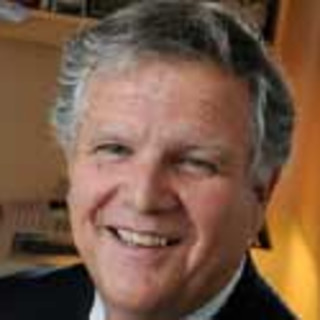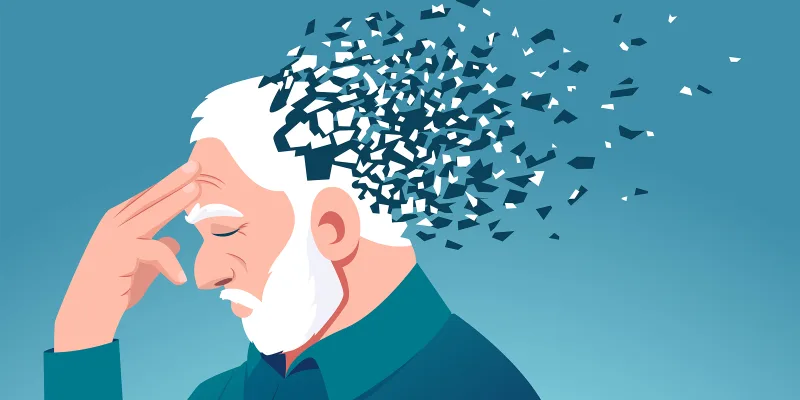This essay is an excerpt from Dr. Hergott's poetry and essay collection, "Departure From the Darkness and the Cold," published in 2020.
"The sound of a coffin hitting earth is a sound utterly serious." — Antonio Machado, "The Burial of a Friend"
I think about him several times a year even now, more than 30 years later. When I do, it is with uncomfortable clarity and a surge of briefly incapacitating sadness and guilt. He had come to the office troubled by chest tightness and shortness of breath with exertion. Intelligent and gentle, he was the kind of person you would look forward to seeing over the years.
His physical examination revealed a heart murmur suggestive of severe aortic valve stenosis, which implied a potential reduction of blood flow to the entire body with physical effort. My training, completed just months before, had taught me that it was too dangerous to exercise such patients to assess whether or not their symptoms were cardiac in origin. Rather, cardiac catheterization to determine the severity of the stenosis and coronary angiography in preparation for aortic valve replacement were more appropriate. In the practice world, though, many physicians exercised such patients routinely, and after conferring with colleagues who were my senior I put my patient on the treadmill.
Not long into the test, he suddenly said he felt very bad. He lost the rhythm of his gait and was unable to keep up with the treadmill, which we quickly stopped. Woozy and barely able to step off the belt, he turned his head up and slumped to the floor. The ECG showed a regular heart rhythm and was without evidence of a heart attack. His blood pressure was unobtainable. The pathophysiology of what had happened was obvious: exercise-induced dilation of his arteries and thus marked reduction of blood pressure in the setting of what truly was severe aortic stenosis. Also clear was the necessity of rapid resuscitation if we were to save his life. But the resuscitation was unsuccessful and he died there on the floor without regaining consciousness. Stunned, the nurses and I knelt silent and immobile next to him. But the horror was not over. I still had to phone his wife, who waited at home. Making the call was in its way as hard as witnessing his death. She too seemed a lovely person and though dazed was remarkably understanding. She relayed that just before he left the house he had told her, “If they put me on the treadmill I don’t think I will make it.” He had not expressed that to me, deferring to the judgment of his cardiologist.
I have wondered over the years how long he might have lived had we been able to replace his aortic valve successfully. Would he have been alive when I thought about him in 1990? In 2000? In 2010? Is his wife alive? Did she live the rest of her life alone? There are two ways the death of a loved one affects people: the dying process is one, the loved one’s absence the other — and often worse. She suffered the shock of the first and the loneliness of the latter. So much in life depends on who comes to our side. Their journey together ended with his coming to see me. I expressed my sorrow to her then and would again if given the chance. It is painful to write about and utterly serious still.
On occasion I envision myself kneeling at my aortic stenosis patient’s side after the unsuccessful resuscitation, and hearing again the sound of his wife's voice on the phone. Doing so brings a sudden inner darkness, making real in a physical way something Balthasar Gracian described in the 17th century, "a single cloud that eclipses the sun." But, inspired by the soul of medicine, dedicated to medical practice, and motivated by the awareness of how much good there is yet to be done, I am heartened as my workday continues and I help people, as others help me — and feel once more the warmth of the sun and the mostly brilliant blue sky that medical practice is by its nature.
How have you processed patient deaths over the years? Share the experiences that have stayed with you in the comments below.
Dr. Lawrence Hergott is Emeritus Professor of Medicine and Senior Scholar in Creative Writing at the University of Colorado. Before writing, Dr. Hergott was an honored cardiologist for 20 years at Kaiser Permanente in Denver, Colorado. He then spent another 17 years of patient care and writing at the University of Colorado. Dr. Hergott’s poems and essays have been published in a variety of places such as JAMA, The Expository Times at the University of Edinburgh School of Divinity, BBC.com, and Healing the Hearts of Men and Gorillas. Dr. Hergott has a wondrous family as well.
All names and identifying information have been modified to protect patient privacy.







